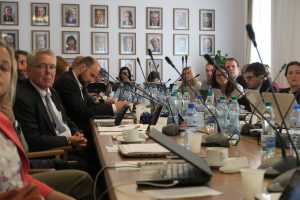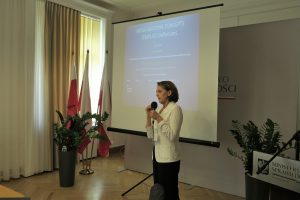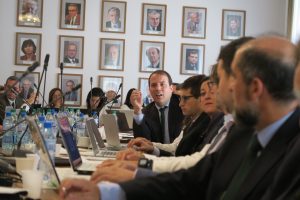Warsaw, 27th -28th Sept. 2018
3rd Training Session IMOLA II Project
The 3rd training seminar of the IMOLA II project was held in Warsaw on the 27th and 28th of September according to the schedule of activities set out in the Governance Plan. This seminar brought together a large number of national authorities designed as Contact Points (CP) of the European Land Registry Network, supported by the IMOLA coordination team and scholars in semantics and new technologies.
The objectives of the seminar were the following:
- To introduce the CPs to the use of attributes to determine the properties of concepts included as pivot terms.
- To analyse the data bases of national concepts in order to solve potential problems and to define next steps.
- To detail the improvements introduced in the new version of IMOLA Knowledge Manager (KM), for the management of distributed domain.
In the introduction session, the excellent presentation by Professor Elena Ioriatti (Trento University) which related to the use of “formant” methodology to define the attributes of concepts must be highlighted. Professor Sjef van Erp (Maastricht University) also spoke about the influence of new technologies from the perspective of comparative law.
Conceptual and semantic issues regarding the use of attributes were dealt with by very clear and didactic presentations carried out by the IMOLA coordination team.
One of the most important features brought to the new Knowledge Manager (KM) is the possibility of consolidating different national databases with multilingual mapping as a management tool for the Land Registry domain. Professor Anabel Fraga, from the Carlos III University of Madrid, and engineers Borja López and Miguel Téllez from the Reuse Company, delivered a very extensive explanation on how to manage it.
The second session was devoted to clarifying how to add new concepts to the list of pivot terms, (ELRD dynamic vision), for the sake of acquiring knowledge and experience to keep the repository and thesauri, (I. KOS) updated.
It is worth emphasizing the excellent collaborative environment achieved during the training seminar, which allowed CPs to take full advantage of the hands-on training and learning from the speakers and the feedback provided by themselves.



